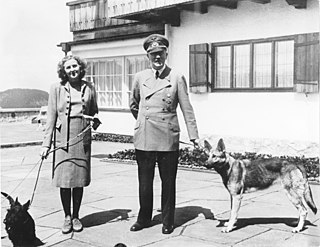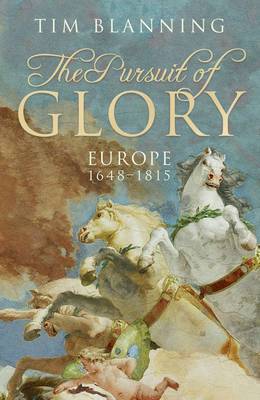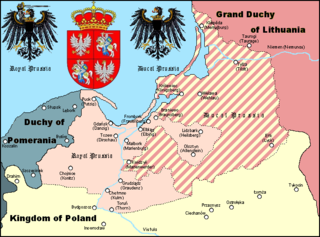Related Research Articles
Diplomatic history deals with the history of international relations between states. Diplomatic history can be different from international relations in that the former can concern itself with the foreign policy of one state while the latter deals with relations between two or more states. Diplomatic history tends to be more concerned with the history of diplomacy, but international relations concern more with current events and creating a model intended to shed explanatory light on international politics.

Gregor Strasser was a German politician and early leader of the Nazi Party. Along with his younger brother Otto, he was a leading member of the party's left-wing faction, which brought them into conflict with the dominant faction led by Adolf Hitler, resulting in his murder in 1934. The brothers' strand of the Nazi ideology is known as Strasserism.

A fluyt is a Dutch type of sailing vessel originally designed by the shipwrights of Hoorn as a dedicated cargo vessel. Originating in the Dutch Republic in the 16th century, the vessel was designed to facilitate transoceanic delivery with the maximum of space and crew efficiency. Unlike rivals, it was not built for conversion in wartime to a warship, so it was cheaper to build and carried twice the cargo, and could be handled by a smaller crew. Construction by specialized shipyards using new tools made it half the cost of rival ships. These factors combined to sharply lower the cost of transportation for Dutch merchants, giving them a major competitive advantage. The fluyt was a significant factor in the 17th-century rise of the Dutch seaborne empire. In 1670 the Dutch merchant marine totalled 568,000 tons of shipping—about half the European total.

Sir Ian Kershaw is an English historian whose work has chiefly focused on the social history of 20th-century Germany. He is regarded by many as one of the world's foremost experts on Adolf Hitler and Nazi Germany, and is particularly noted for his biographies of Hitler.

Hans Mommsen was a German historian, known for his studies in German social history, for his functionalist interpretation of the Third Reich, and especially for arguing that Adolf Hitler was a weak dictator. Descended from Nobel Prize-winning historian Theodor Mommsen, he was a member of the Social Democratic Party of Germany.

Sir Richard John Evans is a British historian of 19th- and 20th-century Europe with a focus on Germany. He is the author of eighteen books, including his three-volume The Third Reich Trilogy (2003–2008). Evans was Regius Professor of History at the University of Cambridge from 2008 until his retirement in 2014, and President of Cambridge's Wolfson College from 2010 to 2017. He has been Provost of Gresham College in London since 2014. Evans was appointed Knight Bachelor for services to scholarship in the 2012 Birthday Honours.

Adolf Hitler was an Austrian-born German politician who was the dictator of Nazi Germany from 1933 until his suicide in 1945. He rose to power as the leader of the Nazi Party, becoming the chancellor in 1933 and then taking the title of Führer und Reichskanzler in 1934. During his dictatorship, he initiated the European theatre of World War II by invading Poland on 1 September 1939. He was closely involved in military operations throughout the war and was central to the perpetration of the Holocaust: the genocide of about six million Jews and millions of other victims.
Advanced Placement (AP) European History, is a course and examination offered by the College Board through the Advanced Placement Program. This course is for high school students who are interested in a first year university level course in European history. The course surveys European history from between 1300-1450 CE to the present, focusing on religious, social, economic, and political themes.
Jeremy Black is a British historian, writer, and former professor of history at the University of Exeter. He is a senior fellow at the Center for the Study of America and the West at the Foreign Policy Research Institute in Philadelphia, Pennsylvania, US.
Cabinet wars, derived from the German expression Kabinettskriege, is a historical term to describe the shift from the regular, limited, aristocratic conflicts of the eighteenth century to total war following the French Revolution. Historians define cabinet wars as a period of small conflicts not involving standing armies, but with a growing military class arising to advise monarchs. The term derived from the council these cabinets provided during the period of absolute monarchies from the 1648 Peace of Westphalia to the 1789 French Revolution. These cabinets were marked by diplomacy and a self-serving nobility.
Timothy Charles William Blanning is an English historian who served as Professor of Modern European History at the University of Cambridge from 1992 to 2009.

The sexuality of Adolf Hitler, dictator of Germany from 1933 to 1945, has long been a matter of historical and scholarly debate, as well as speculation and rumour. There is evidence that he had relationships with a number of women during his lifetime, as well as evidence of his antipathy to homosexuality, and no evidence of homosexual encounters. His name has been linked to a number of possible female lovers, two of whom committed suicide. A third died of complications eight years after a suicide attempt, and a fourth also attempted suicide.
"Second Thirty Years' War" is a periodization scheme sometimes used to encompass the wars in Europe from 1914 to 1945. Just as the Thirty Years' War of 1618 to 1648 was not a single war but a series of conflicts in varied times and locations, later organized and named by historians into a single period, the Second Thirty Years' War has been seen as a "European Civil War", fought over the problem of Germany and exacerbated by the new ideologies of fascism, Nazism and communism that came into power after World War I. The thesis of the Second Thirty Years' War is that World War I naturally led to World War II; in this framework, the latter is the inevitable result of the former, and thus they can be seen as a single conflict. Historians have criticized this thesis on the grounds that it excuses the actions of fascist and Nazi historical actors.

The Pursuit of Glory: Europe 1648–1815, written by the British historian Timothy Blanning, was first published by Allen Lane in 2007. It met with very favourable reviews, was The Sunday Times history book of the year, and was reprinted in paperback by Penguin Books in 2008.

The military career of Adolf Hitler, who was the dictator of Germany from 1933 until 1945, can be divided into two distinct portions of his life. Mainly, the period during World War I when Hitler served as a Gefreiter in the Bavarian Army, and the era of World War II when he served as the Supreme Commander-in-Chief of the Wehrmacht through his position as Führer of Nazi Germany.

Hieronymus Roth (1606–1678) was a lawyer and alderman of Königsberg who led the city burghers in opposition to Elector Frederick William.

The Padua Circular was a diplomatic note produced by Holy Roman Emperor Leopold II on 6 July 1791. Prompted by the arrest of Louis XVI and Marie Antoinette after the Flight to Varennes, the Circular called on the sovereigns of Europe to join him in demanding their freedom. It was followed by diplomatic initiatives in which the Habsburg monarchy looked for rapprochement with its traditional enemy, Hohenzollern Prussia.

To Hell and Back: Europe 1914–1949 is a book on the history of Europe, written by Ian Kershaw. An installment in The Penguin History of Europe series, it spans the period from the outbreak of World War I until the aftermath of World War II and the beginning of the Cold War. Kershaw refers to the 35-year period as "Europe's era of self-destruction".
This is a bibliography of European history focused on some of the main books in English.
References
- ↑ "The Penguin History of Europe". PenguinRandomhouse.com.